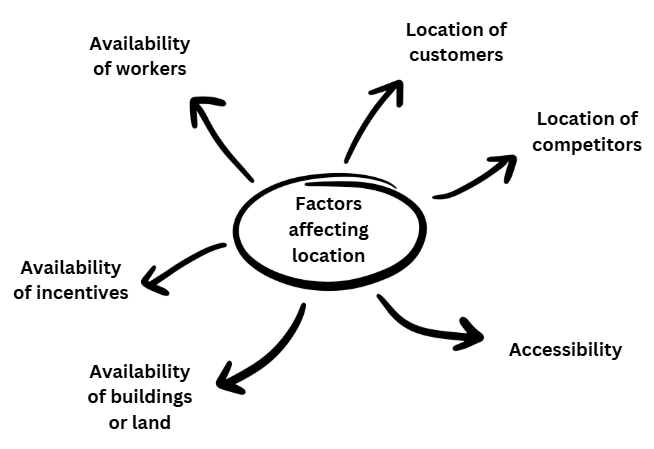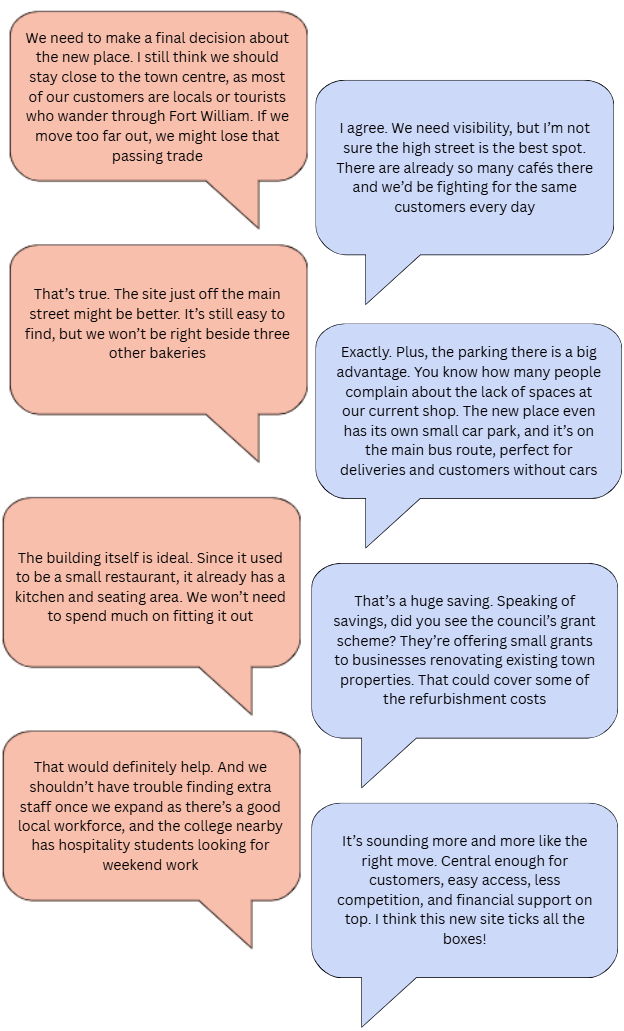Business Location (SQA National 5 Business Management): Revision Note
Exam code: X810 75
Factors affecting the choice of location
When choosing where to set up or relocate, a business must carefully consider a range of factors that influence its costs, convenience and customer reach
The right location can improve sales and provide a competitive advantage, while the wrong one can lead to higher costs and poor performance
Key factors affecting business location

Location of customers
Businesses often choose locations close to their target customers to make purchasing easy and convenient.
Shops and cafés benefit from being in busy high streets or shopping centres with high footfall
Service businesses, such as garages or salons, need to be near where customers live or work
Online businesses may focus less on locating close to customers, but still need good access to delivery networks
Location of competition
The presence of competitors can either attract or discourage businesses, depending on the situation
Some businesses, like fast food chains, cluster to attract large numbers of customers looking for choice
Others, like independent shops, avoid being too close to competitors to prevent splitting the market and reducing sales
Accessibility
A good location must be easy for customers, suppliers and staff to reach
Nearby public transport, car parks and delivery access points are important
For businesses with customers on-site, such as restaurants or gyms, safe and convenient access is essential
Poor accessibility can reduce customer visits and make deliveries more expensive or slower
Availability of suitable buildings or land
A business needs premises that are the right size, layout and cost for its needs
Start-ups may need small, flexible spaces, while manufacturers require large, purpose-built units
Costs vary depending on whether the building is owned, leased, or shared
Renovations or planning restrictions may also affect suitability
Available incentives
Local councils and governments sometimes offer incentives to attract businesses to specific areas
These can include reduced business rates, grants or financial support for creating jobs
Enterprise zones or regeneration areas often provide these benefits to encourage development
Availability of workers
Businesses must ensure they can recruit enough suitable and skilled employees
Areas with high unemployment may offer plenty of applicants, but not always the right skills
Locations near colleges or universities can be good for recruiting young, trained staff
For specialist industries, businesses may need to locate near existing talent or universities
Examiner Tips and Tricks
A common mistake is forgetting that the best location isn’t always the cheapest
Successful businesses balance cost with convenience. Use the phrase “Cheap isn’t always Cheerful” to remind yourself that visibility, customers, and access often matter more than rent
Case Study

Lochside Bakery is a small family-run business based in Fort William, known for its handmade pastries and locally sourced ingredients.
As customer demand has grown, the owners are looking to relocate to a larger premises to increase production and improve access for customers.
Lochside Bakery's owners are discussing a potential new location


Unlock more, it's free!
Was this revision note helpful?
